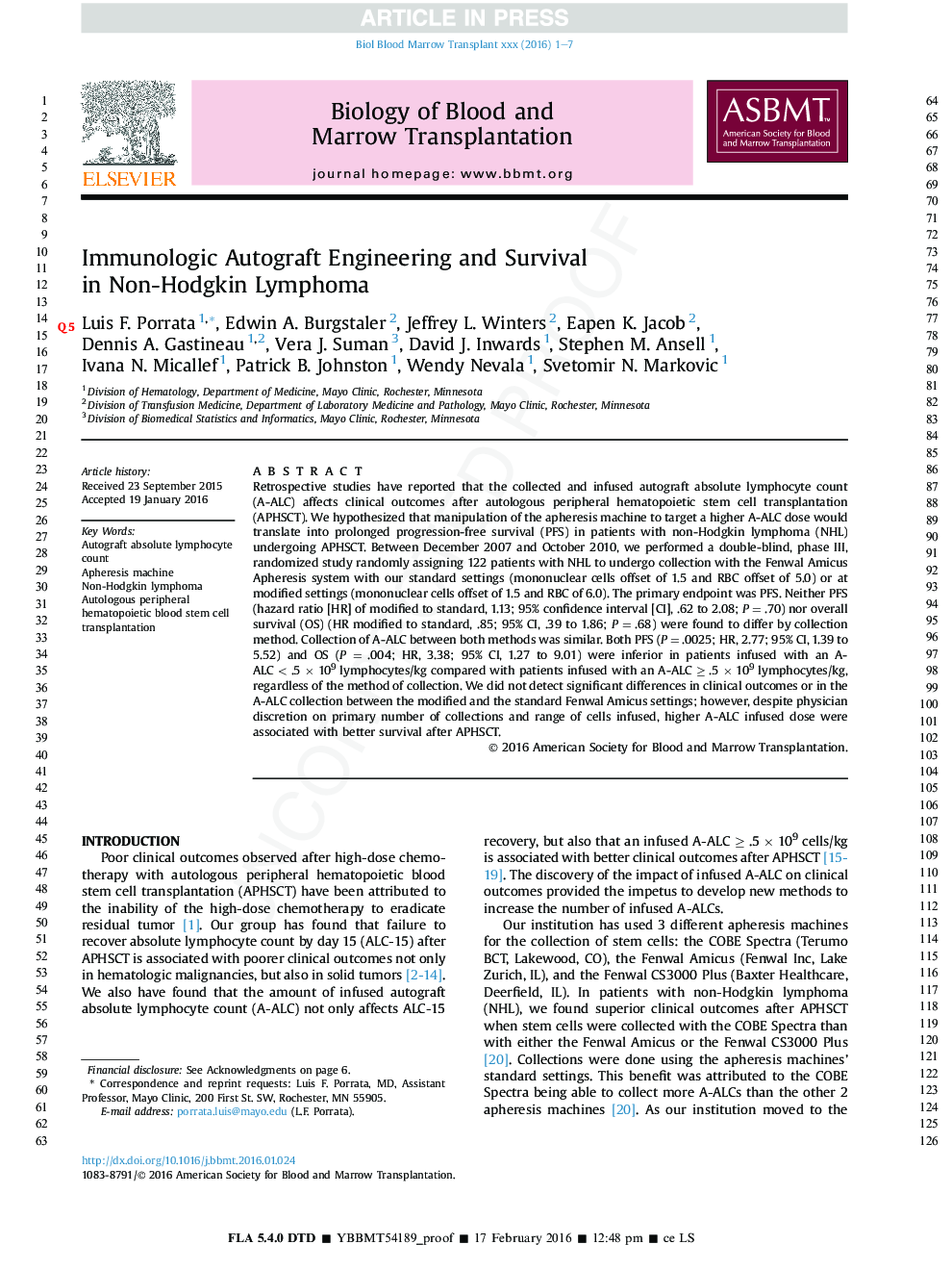| Article ID | Journal | Published Year | Pages | File Type |
|---|---|---|---|---|
| 8431079 | Biology of Blood and Marrow Transplantation | 2016 | 7 Pages |
Abstract
Retrospective studies have reported that the collected and infused autograft absolute lymphocyte count (A-ALC) affects clinical outcomes after autologous peripheral hematopoietic stem cell transplantation (APHSCT). We hypothesized that manipulation of the apheresis machine to target a higher A-ALC dose would translate into prolonged progression-free survival (PFS) in patients with non-Hodgkin lymphoma (NHL) undergoing APHSCT. Between December 2007 and October 2010, we performed a double-blind, phase III, randomized study randomly assigning 122 patients with NHL to undergo collection with the Fenwal Amicus Apheresis system with our standard settings (mononuclear cells offset of 1.5 and RBC offset of 5.0) or at modified settings (mononuclear cells offset of 1.5 and RBC of 6.0). The primary endpoint was PFS. Neither PFS (hazard ratio [HR] of modified to standard, 1.13; 95% confidence interval [CI], .62 to 2.08; P = .70) nor overall survival (OS) (HR modified to standard, .85; 95% CI, .39 to 1.86; P = .68) were found to differ by collection method. Collection of A-ALC between both methods was similar. Both PFS (P = .0025; HR, 2.77; 95% CI, 1.39 to 5.52) and OS (P = .004; HR, 3.38; 95% CI, 1.27 to 9.01) were inferior in patients infused with an A-ALC < .5 Ã 109 lymphocytes/kg compared with patients infused with an A-ALC â¥Â .5 Ã 109 lymphocytes/kg, regardless of the method of collection. We did not detect significant differences in clinical outcomes or in the A-ALC collection between the modified and the standard Fenwal Amicus settings; however, despite physician discretion on primary number of collections and range of cells infused, higher A-ALC infused dose were associated with better survival after APHSCT.
Keywords
Related Topics
Life Sciences
Biochemistry, Genetics and Molecular Biology
Cancer Research
Authors
Luis F. Porrata, Edwin A. Burgstaler, Jeffrey L. Winters, Eapen K. Jacob, Dennis A. Gastineau, Vera J. Suman, David J. Inwards, Stephen M. Ansell, Ivana N. Micallef, Patrick B. Johnston, Wendy Nevala, Svetomir N. Markovic,
